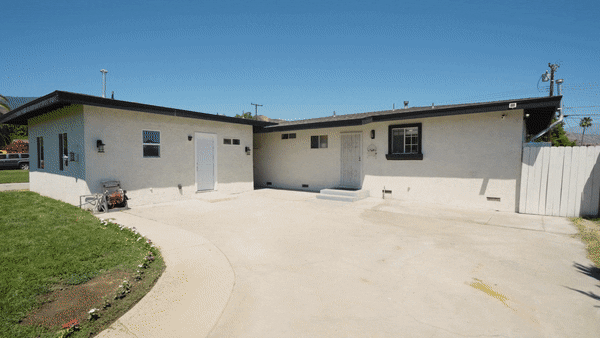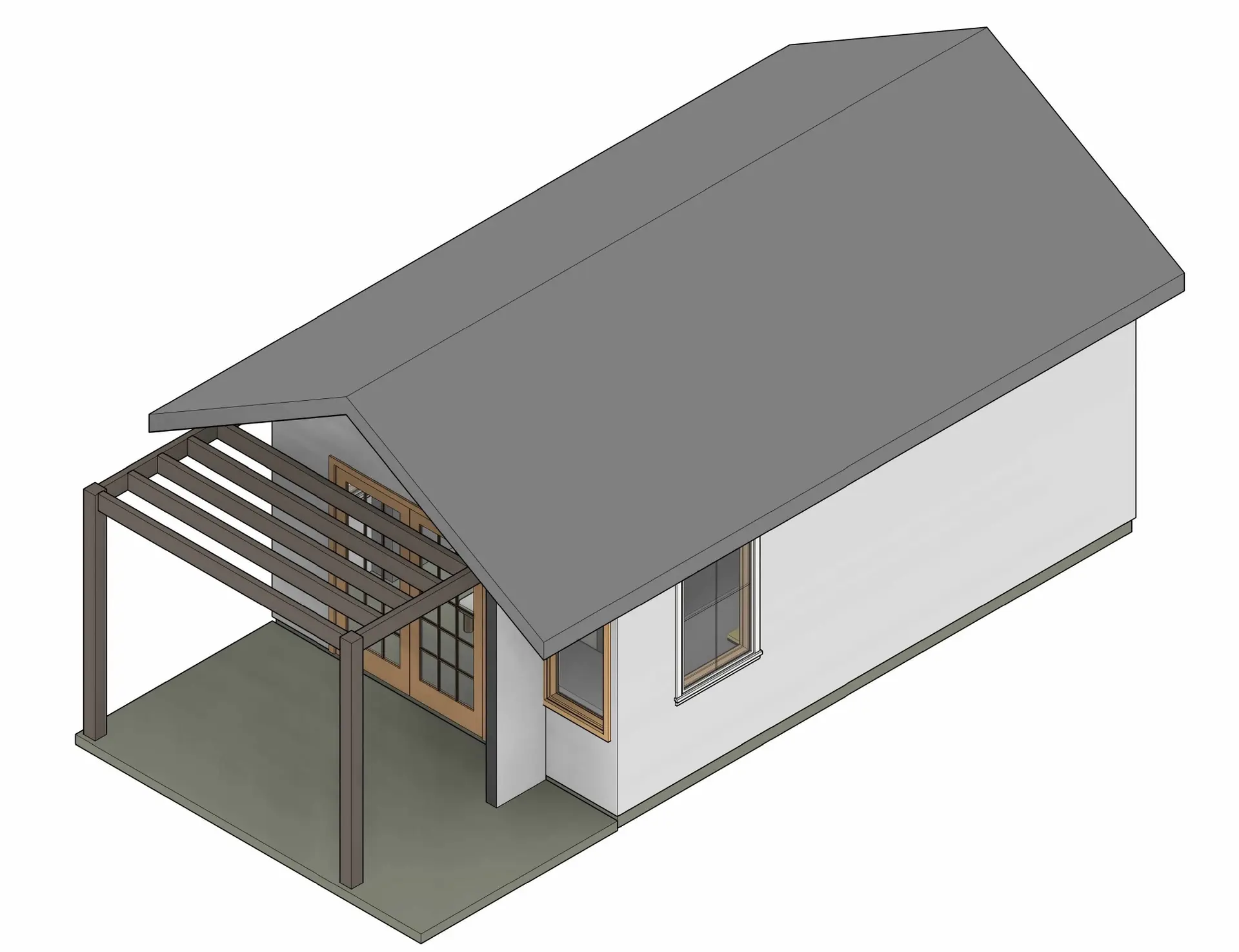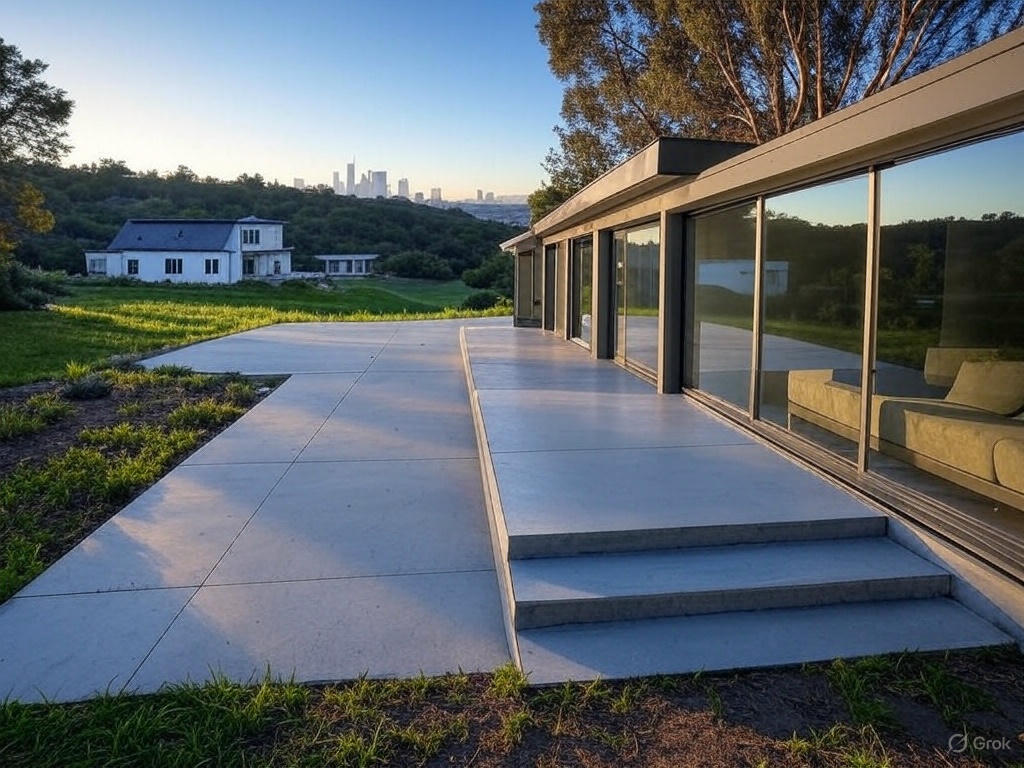DeKalb County has seen growing interest in Accessory Dwelling Units (ADUs) as a housing solution for extended families, rental income, and increasing property values. This comprehensive guide outlines the specific ADU regulations in DeKalb County to help homeowners navigate the planning and approval process.
DeKalb County's Approach to ADUs
DeKalb County's zoning ordinance recognizes ADUs as "accessory apartments" or "accessory structures" depending on whether they are attached to the main dwelling or detached. The county's regulatory framework was updated in 2021 to provide clearer guidelines and expand opportunities for ADU development.
DeKalb County defines an accessory dwelling unit as a secondary, independent living space on the same property as a primary residence. These units must have their own kitchen, bathroom, and entrance, but remain subordinate to the main dwelling in size and appearance.
Important Note
DeKalb County's approach to ADUs differs from both Atlanta city regulations and neighboring Fulton County in several key aspects, particularly regarding size limitations and parking requirements. Understanding these distinctions is crucial for property owners in DeKalb.
Zoning Districts Allowing ADUs in DeKalb County
Not all areas within DeKalb County permit ADUs. They are generally allowed in the following residential zoning districts:
- R-85, R-75, R-60: Single-family residential districts
- R-50: Single-family residential district
- R-A5, R-A8: Single-family residential districts
- RE: Residential estate district
Properties in multi-family zones (RM, HR) typically have different regulations regarding accessory structures that may not classify as true ADUs under the county's definition.
Overlay District Considerations
Several areas within DeKalb County have special overlay districts that may impose additional requirements or restrictions on ADU development:
- Druid Hills Historic District: Requires historic preservation review
- Emory Village Overlay: Has specific design standards
- Northlake Overlay: May have additional parking requirements
- I-20 Corridor Overlay: Contains specific architectural standards
Property owners in these overlay districts should consult with the DeKalb County Planning Department early in the planning process to understand all applicable requirements.
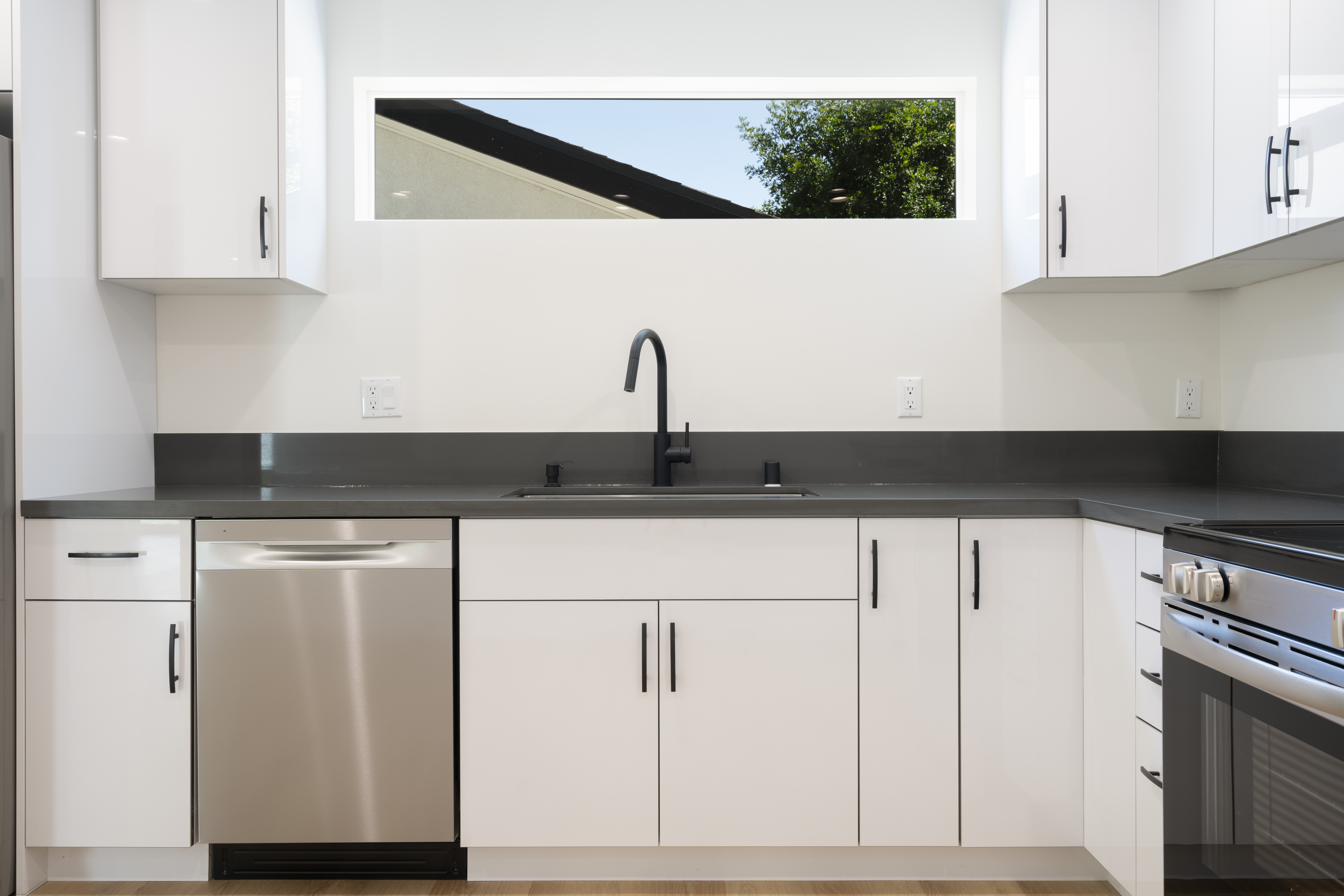
DeKalb County ADU Size and Design Regulations
DeKalb County imposes several specific restrictions on ADU development to ensure these structures remain truly accessory to the main dwelling:
Size Limitations
- Maximum size: 800 square feet or 50% of the primary dwelling's heated floor area, whichever is less
- Minimum size: 300 square feet (per building code requirements for habitable space)
- Maximum height: 24 feet for detached ADUs
- Stories: Maximum of two stories for detached units
Setback Requirements
Detached ADUs in DeKalb County must maintain:
- Side setbacks: Typically 7.5 feet from side property lines
- Rear setbacks: 10 feet from rear property lines
- Distance from main house: Minimum 10 feet
Design Requirements
DeKalb County requires that ADUs:
- Be architecturally compatible with the main residence
- Use similar exterior materials, colors, and roof pitch
- Not appear to create a duplex or multi-family appearance
- Have entrances oriented away from the street when possible
Expert Tip
In DeKalb County, converting an existing structure like a garage to an ADU can sometimes be simpler from a regulatory perspective than building new. These conversions often face fewer hurdles regarding setbacks, as they maintain the existing building footprint.
Occupancy and Usage Regulations
DeKalb County places specific restrictions on how ADUs can be used and occupied:
Owner Occupancy Requirements
The property owner must reside in either the primary dwelling or the ADU as their permanent residence. This requirement is stricter than in some neighboring jurisdictions and is enforced through an owner-occupancy covenant that must be recorded with the property deed.
Rental Regulations
If the property owner lives in the main dwelling, the ADU can be rented out. Key regulations include:
- Minimum lease term of 30 days (no short-term rentals)
- Maximum occupancy limits based on square footage
- Prohibition on separate utility metering in some cases
Parking Requirements
DeKalb County requires one additional off-street parking space for an ADU, beyond what is required for the main residence. This space:
- Must be paved or use permeable materials approved by the county
- Cannot be in the front yard area
- Must be at least 9 feet by 18 feet in dimension
In certain areas, particularly near MARTA transit stations, these parking requirements may be reduced or waived upon application.
The DeKalb County ADU Permitting Process
The process for obtaining approval for an ADU in DeKalb County involves several steps:
- Pre-Application Meeting (recommended): Schedule a meeting with the Planning Department to discuss your specific property and plans.
- Zoning Verification: Confirm your property's zoning status and any overlay district requirements.
- Application Submission: Submit detailed plans, site surveys, and required forms to the Building Permits Department.
- Owner-Occupancy Covenant: Prepare and record this document with the DeKalb County Clerk of Superior Court.
- Plan Review: Plans will be reviewed by Planning, Zoning, Building, and sometimes Watershed Management departments.
- Permitting: Upon approval, building permits are issued.
- Inspections: Multiple inspections occur during construction.
- Certificate of Occupancy: Final approval allowing the ADU to be occupied.
The typical timeline for this process in DeKalb County ranges from 3-6 months, depending on the complexity of the project and the completeness of your application materials.
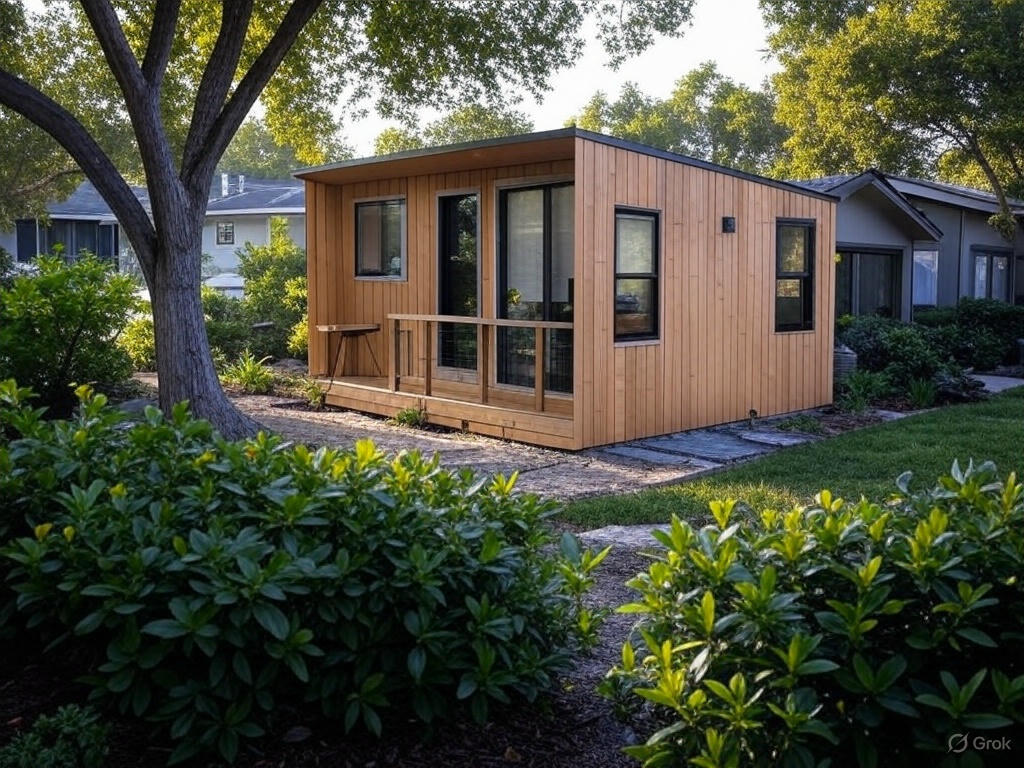
Specific Challenges in DeKalb County
Several challenges are particularly relevant to ADU development in DeKalb County:
Tree Ordinance Compliance
DeKalb County has a rigorous tree protection ordinance that may impact ADU placement and construction. Key provisions include:
- Protection of trees over 8 inches in diameter
- Requirement for tree surveys as part of the permitting process
- Possible recompense fees for necessary tree removal
- Potential replanting requirements
Stormwater Management
Adding impervious surface area through ADU construction may trigger stormwater management requirements. For properties over one acre, a formal stormwater management plan may be required.
Sewer Capacity Verification
DeKalb County requires verification of sewer capacity for new ADUs connecting to the county sewer system. Some areas have capacity concerns that may affect approval.
Septic System Considerations
For properties using septic systems, the DeKalb County Board of Health must certify that the existing system can handle the additional capacity or approve modifications to the system.
Common Approval Obstacles
The most common reasons for ADU application delays or denials in DeKalb County are incomplete documentation, septic system capacity issues, and tree ordinance violations. Addressing these aspects early in your planning process can help avoid costly revisions and delays.
Costs Specific to DeKalb County
Building an ADU in DeKalb County involves several county-specific fees and costs to consider:
- Building Permit Fees: Typically $5-8 per $1,000 of construction value
- Plan Review Fees: Approximately $350-650 depending on project complexity
- Water/Sewer Connection Fees: $2,500-4,000 if new connections are needed
- Impact Fees: Approximately $1,200-1,800 for new residential unit
- Tree Recompense Fees: Variable based on trees affected
- Recording Fees: $25-50 for owner-occupancy covenant
These fees are in addition to the construction costs, which typically range from $200-300 per square foot for quality ADU construction in the DeKalb County area.
DeKalb County ADU Opportunities
- Larger maximum size than some neighboring jurisdictions
- Clear pathway for garage conversions
- Potential for reduced parking requirements near transit
- Strong appreciation potential in many neighborhoods
- Growing county support for ADU development
DeKalb County ADU Limitations
- Strict owner-occupancy requirements
- More rigorous tree protection standards
- Challenges in areas with limited sewer capacity
- Overlay district restrictions in many neighborhoods
- Longer typical approval timeline than some areas
Conclusion
While navigating DeKalb County's ADU regulations presents certain challenges, the county has made significant strides in clarifying its regulations and processes in recent years. For homeowners willing to invest the time to understand and comply with the specific requirements, an ADU can be a valuable addition to your property.
As regulations continue to evolve, working with professionals familiar with DeKalb County's specific requirements can significantly streamline the process and help avoid costly missteps.
Need Help With Your DeKalb County ADU Project?
ADU Atlanta specializes in navigating DeKalb County's unique regulatory environment. Our team has successfully completed numerous ADU projects throughout the county.
Contact us today for a free consultation to discuss your DeKalb County ADU plans.

